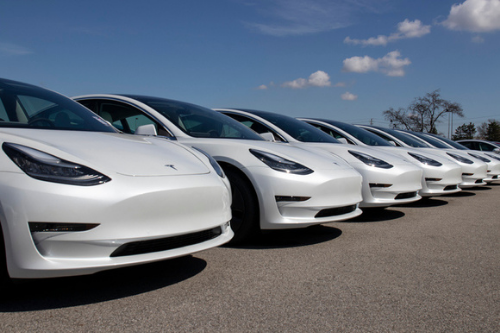Tesla rolls out new auto insurance product
[ad_1]
The automotive company Tesla is now offering its customers a new insurance product in Texas – the state to which, according to CEO Elon Musk, his company will relocate its headquarters from California.
The new insurance product, which is only available in Texas for the time being, uses “real-time driving behavior” to determine customers’ insurance rates. This differs from the previous Tesla insurance product in California, which does not rely on real-time driver data. However, the insurance product will continue to use Tesla’s “Safety Score” system, which takes metrics such as aggressive cornering, heavy braking and unsafe following distances into account when pricing a driver’s insurance costs.
Tesla also stated that no additional devices need to be installed in consumers’ vehicles for their real-time driving monitoring feature to work. The automaker said it uses “specific characteristics within the vehicle” to assess drivers’ behavior and determine their rewards.
In particular, Tesla insists that the age or gender of consumers should not be taken into account when calculating premiums. The automaker also said it won’t look at drivers’ accident histories either.
According to the automaker, drivers with an “average” safety score should be able to save between 20 and 40% of their insurance costs compared to the competition. Meanwhile, drivers with the highest safety scores could save 30 to 60% on their insurance costs.
Electrek reported that the new insurance will be made available to owners of Tesla Model S, Model 3, Model X and Model Y vehicles in Texas. Those who apply for an offer are initially given a safety rating of 90; Drivers’ scores and their rewards are then adjusted based on their performance.
The new insurance product comes after Tesla CEO Elon Musk announced earlier this month that the company’s headquarters are moving from California to Austin, TX, where the automaker is building a new factory. The chairman said the company’s size in the Bay Area was limited, adding that high property prices in California meant its employees had to travel long distances to work.
[ad_2]

